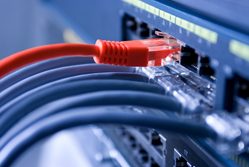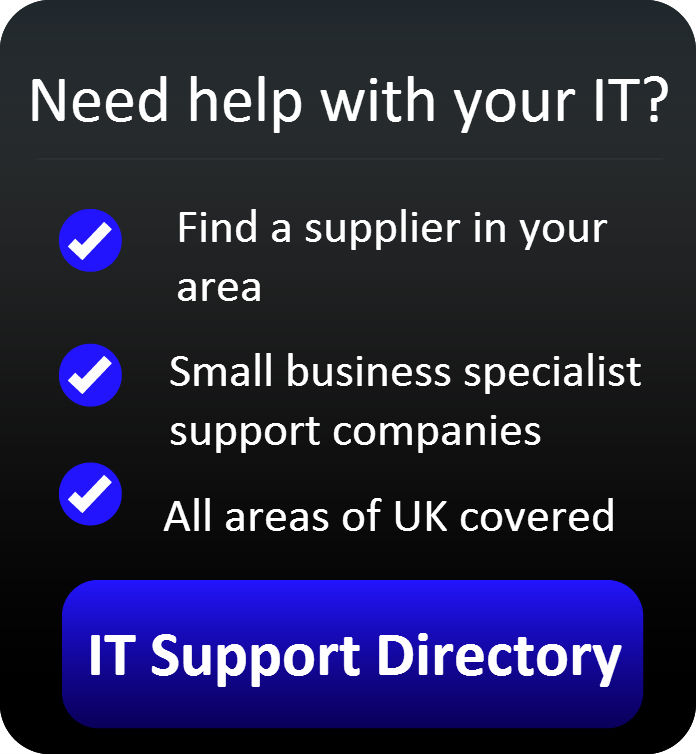Network equipment and cables
 A computer network connects together all your computers, plus other peripheral equipment like printers
A computer network connects together all your computers, plus other peripheral equipment like printers
To build a computer network you will need a range of physical equipment including the following pieces of network hardware:
- Cables and connectors. These link together the computers, printers, servers and other equipment on your network.
- A router or switch. This manages network traffic, ensuring devices can communicate with each other.
- A wireless access point. This allows people to connect to the network wirelessly.
- An internet connection. This could be a simple broadband connection over a telephone line or a faster fibre connection.
- A hardware firewall. This creates a secure barrier between your network and the internet, blocking security threats.Networks also often include a network server which runs central applications, acts as an IT hub and provides file storage.
Network hardware building blocks
Most businesses still build their network with cables because they’re very reliable and fast. The most common type is Ethernet cable, which is rated for speed. Cat 6 cables can carry data fast enough for any business purpose.
When building their network most businesses install network sockets at convenient locations in their premises, so computers and other devices can be plugged into the network. The sockets cost about £3 each.
Switches and routers: important network components
Switches and routers act as signposts indicating where data on your network should go.
They both perform the same basic job, enabling devices on your network to communicate with each other. However, while routers will actively manage your network to help ensure it performs well, switches are less efficient.
Your IT requirements and business growth plans are likely to dictate your choice of router or switch. Ask your IT supplier if you’re unsure. You need a spare router connection for every piece of equipment you want to wire up to the network.
A basic router with four connections can cost from £30. A more advanced model, with 24 connections, could cost £150 or more.
Going wireless
You can also add a wireless access point or use a wireless router so people can connect to your network wirelessly.
As an increasing number of devices (like smart phones and tablet computers) rely on wireless networking, it’s usually worth adding wireless capabilities, even if everyone in your business currently works from a desktop computer.
Wireless is ideal for providing network access in meetings or common areas and can also be used to offer internet access to visitors. A wireless access point will cost from £20. Wireless routers start at £40.
Network equipment and the internet
You’ll almost certainly want to connect your network to the internet. The type of internet connection you use will determine what network equipment you need to do this.
If you rely on a broadband connection over a standard phone line (also called ADSL broadband) and only have a few computers in your business, look for a router with built-in internet capability. These cost around £40 and may be all you need to set up a basic network.
If you have more than four computers or rely on a different type of connection, you might need other equipment to get online. Check with your internet provider.
Network equipment speeds
Most network equipment complies with common standards, so you can combine routers, cables and firewalls from different manufacturers. However, the speed of the slowest part of your network may limit the rest of it. So, for example, if all your cables and computers are rated to Cat 6, make sure your router is rated to Cat 6 too.
There are a number of wireless networking standards too. Try to get a wireless router or access point rated to ‘Wireless n’ or ‘802.11n’. It’s the fastest type available, but will still work with older wireless equipment too.
- Setting up remote access to your network
- Managing your network
- How we replaced our servers with virtualisation





Comments
Add a comment
Not registered? We'll create a new account for you when you add your comment